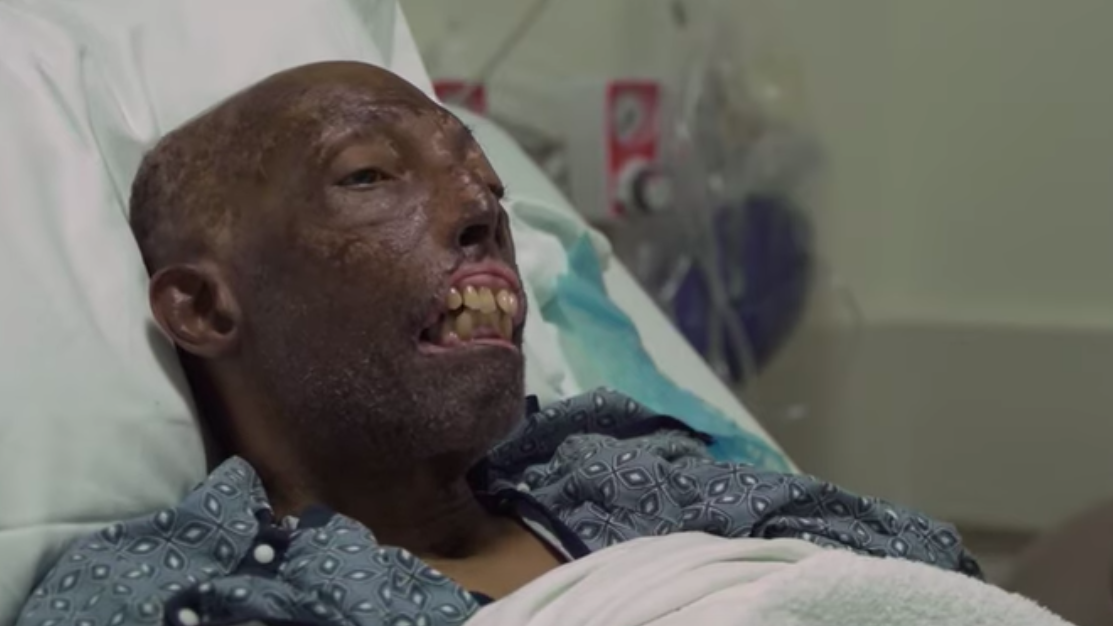Robert Chelsea is the first Black person to undergo a face transplant, and the oldest, at 68 years old.
The surgery, which occurred in July, was performed at Brigham and Women’s Hospital in Boston. He was discharged about a month later.
“May God bless the donor and his family who chose to donate this precious gift and give me a second chance," Chelsea said in a statement. "I am overwhelmed with gratitude and feel very blessed to receive such an amazing gift."
In August of 2013, a drunk driver struck Chelsea’s car, which started a fire. The Los Angeles native suffered burns on over 60% of his body and face. He spent four months at the University of California Irvine Medical Center going through 18 surgeries. He left the hospital in December but lost his lips, end of his nose, several fingertips and two-thirds of his intestines.
He was put on the transplant list in 2018. The doctors first planned on a partial face transplant, but after about a year of not finding a donor that would match Chelsea’s skin tone, they decided on a full face transplant. Chelsea and his surgeon, Dr. Bohdan Pomahac, used a 1 to 18-scale system to determine potential donors' complexions, 1 being the lightest. Chelsea was determined to be a 15 or 16.
He was offered a face at one point, but turned it down, ultimately deciding the skin tone was too light for him. He didn’t want to become a “totally different looking person.”
Jessica DeCuir-Gunby, a professor at North Carolina State University who studies transplants, told Time Magazine that accepting a face from a donor with a much lighter skin tone could present a range of emotions since Black identity exists across a spectrum of colors, hair textures and facial features. Such a drastic change in physical appearance can result in psychological trauma, she says.
Chelsea’s transplant is expected to have an aftereffect. Black patients usually face longer waits for major organs than white patients, according to Time. Black people are not as likely to become organ donors as white people are.
“It is vitally important for individuals of all races and ethnicities to consider organ donation, including the donation of external grafts, such as face and hands," Alexandra Glazier, president of the New England Donor Services, said in a statement. “Unlike internal organs, the skin tone of the donor may be important to finding a match.”
Doctors are hoping more Black people will become donors now that Chelsea underwent surgery.
“Having a visible, tangible reference, especially for African Americans … is so needed,” says Marion Shuck, president of the Association for Multicultural Affairs in Transplantation.
Chelsea says it took him a while to recognize the significance of his surgery, and once he did, he wasn’t sure how to feel.
“There is a degree of pride, admittedly, and yet I’m not sure that it’s something to be proud of,” he said. “To celebrate an individual because they haven’t done anything any more than anybody else, they just happened to be there at the right time … there’s nothing holy about those actions.”
He ultimately did realize how this can benefit Black people and urge them to become donors.
“We are a lot more hesitant to be a donor,” he says. “It causes us to lose out when we need a kidney or a liver or a lung.”
Fewer than 50 face transplants have been completed globally. Chelsea’s is the 15th face transplant in the U.S. The surgery took more than 16 hours and more than 45 doctors, nurses, anesthesiologists and others.
